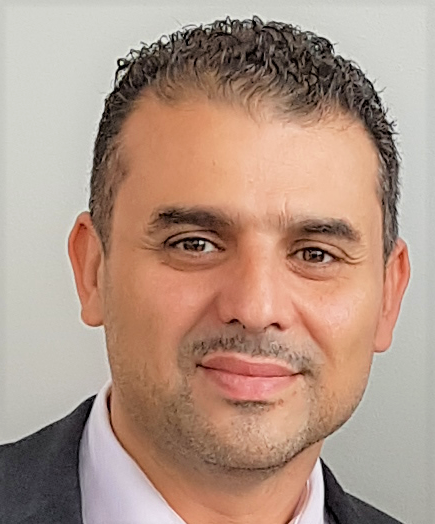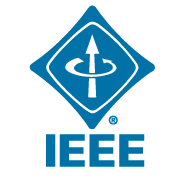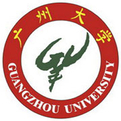You are Welcome to Attend 12 Keynote Speeches Shared by IEEE Smart World Congress 2018 and Co-Located IEEE UIC 2018 & IEEE ATC 2018 & IEEE ScalCom 2018 & IEEE CBDCom 2018 & IEEE IoP 2018 & IEEE SCI 2018 Conferences!
Part I: IEEE Smart World Congress 2018
Keynote Speaker 1: Prof. Dame Wendy Hall, University of Southampton, UK
Title: AI through the looking glass
Keynote Speaker 2: Prof. Yanliang Du, Shijiazhuang Tiedao University, China
Title: Research on the Development Status of China Transport Infrastructure and Intelligent Road Network Package
Keynote Speaker 3: Prof. Abdulmotaleb El Saddik, University of Ottawa, Canada
Title: Digital Twin: The convergence of Multimedia Technologies
Keynote Speaker 4: Prof. Mohammed Atiquzzaman, University of Oklahoma, USA
Title: Smart Communication with Space: Protocols and Mobility Management
Keynote Speaker 5: Prof. Wanlei Zhou, University of Technology Sydney, Australia
Title: Privacy-preserving in Crowdsensing Systems
Keynote Speaker 6: Dr. Yihong Qi, CEO of General Test Systems
Title: Radio Frequency Device and Performance Test for Smart World
Detailed Information about Keynote Speeches
Abstract. Artificial Intelligence is set to transform society in the coming decades in ways that have long been predicted by science fiction writers but are only now becoming feasible because of recent developments in computing technology, machine learning and the availability of massive amounts of data on which to train the algorithms. We are still a long way from AI being as powerful as the human brain but many applications can now outperform human beings, particularly when it comes to analysing large amounts of data to predict results. This will lead to many jobs being replaced by automated processes and machines, but as with all major technological revolutions there are also amazing opportunities for the development of new companies and the growth of jobs to help us take advantage of everything that the development of AI might bring to society. In this talk we will talk about how the UK is positioning itself in this brave new smart world in the light of the recent AI Review that has been undertaken as part of the UK government’s industrial strategy. But we must also be very aware of the potential threats to society that such developments might bring and the ethical, accountability and diversity issues we need to address. As Alice found when she went through the looking glass, everything is not always what is first appears to be. If we don’t lay the groundwork well now, there is huge potential for chaos and confusion in the future as AI starts to become more dominant in all our lives, which is why we need to take a socio-technical approach to every aspect of the evolution of AI in society.
Biography. Dame Wendy Hall, DBE, FRS, FREng is Regius Professor of Computer Science, Pro Vice-Chancellor (International Engagement) at the University of Southampton, and is the Executive Director of the Web Science Institute.
With Sir Tim Berners-Lee and Sir Nigel Shadbolt she co-founded the Web Science Research Initiative in 2006 and is the Managing Director of the Web Science Trust, which has a global mission to support the development of research, education and thought leadership in Web Science.
She became a Dame Commander of the British Empire in the 2009 UK New Year's Honours list, and is a Fellow of the Royal Society.
She has previously been President of the ACM, Senior Vice President of the Royal Academy of Engineering, a member of the UK Prime Minister’s Council for Science and Technology, was a founding member of the European Research Council and Chair of the European Commission’s ISTAG 2010-2012, was a member of the Global Commission on Internet Governance, and until June 2018, was a member of the World Economic Forum’s Global Futures Council on the Digital Economy.
Dame Wendy was co-Chair of the UK government’s AI Review, which was published in October 2017, and has recently been announced by the UK government as the first Skills Champion for AI in the UK.
|
Top↑
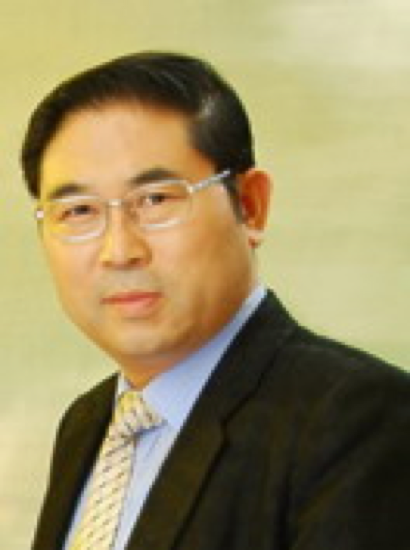 | Title: Research on the Development Status of China Transport Infrastructure and Intelligent Road Network Package
Keynote Speaker 2: Prof. Yanliang Du
Shijiazhuang Tiedao University, China |
|---|
Abstract. “The achievements and challenges during the development of China Transport Infrastructure?”
The construction of transportation infrastructure has been making great progress, which is unprecedented in the amount of investment and the speed of growth. Meanwhile, rapid development of traffic construction has also laid a solid foundation for supporting rapid and sound development of economy and played an enormous role in boosting economic development, social progress, stability in border areas and national unity. However, for the transportation infrastructure, which its life cycle reached end of life and still has a certain function, demolishment and re-building using large sums of money, not only cause a lot of waste resource but also will be difficult to realize because of the restriction of the busy traffic, environment protection, geographic space requirement, etc.
“The characteristics of the intelligent road network?”
With the development of smart city and intelligent transportation systems (ITS), numerous sensing devices are developed in traffic network. It can utilize various kinds of data sources such as vehicle sensors and traffic cameras and hold the potential to alleviate the phenomenon. Significant increasing number of available sensing devices, mobile devices, and real-time monitors, and advanced sustainable transport infrastructure generate a huge amount of city transportation data. Currently, this city transportation big data is unfortunately not fully analyzed and utilized in city traffic data services.
“What should we do for the Future Intelligent Road Network?”
Based on the technology of seamless perception, using the Internet of Things(IoT), Big data, Cloud Computing and so on, research the comprehensive information integration technology and innovate the new operation and management modes of Intelligent Transport Network, to optimize the operational procedures and improve the control ability and maintenance decision level of the government, and to build new regulatory means and coordination and linkage mechanism between government departments. The Development and advancement of the intelligence road network research has a great scientific significance and application value for security the safety traffic infrastructure, the long-term service performance, smooth and efficiency in transport traffic.
Biography. Prof. Yanliang Du is a professor in the Structural Health Monitoring and Control Institute at the Shijiazhuang Tiedao University, Hebei province, China. He received his Bachelor and Master Degree in engineering from PLA Railway Corps Engineering College and Beijing Jiaotong University in 1980 and 1989, respectively. In 1993, he obtained his Ph.D. in engineering from Beihang University, China.
His research interests are in large engineering structure state monitoring and safety control, especially the railway safety monitoring and reliability evaluation. He has successfully integrated the intelligent structure theory and incorporated it into the civil engineering safety assurance technology. Besides, he proposed a new structure state monitoring and safety control theory, namely monitoring - evaluation - early warning – repair theory, and applied it in many China rail transit projects such as the national high-speed railway, the heavy haul railway, the railway in cold and plateau area, the sped-up existing railway and the urban railway.
Dr. Yanliang Du received many awards, such as the First Prize (once) and the Second Prize (twice) of National Science and Technology Progress Awards, the First Prize of Ministerial and Provincial-Level Science and Technology Awards (six times), the First Prize (once) and the Second Prize (twice) of National Teaching Achievement Awards, Science and Technology Awards of the Ho Leung Ho Lee Foundation (once). He also obtained the honorary titles of National Outstanding Professional and Technical Personnel and National Outstanding Teacher. He has been authorized 12invention patents, and published more than 180 papers and 9 Monograph / textbooks. He was elected as the Chinese Academy of Engineering in 2013.
|
Top↑
Abstract. A digital twin is a digital replication of a living or non-living physical entity. By bridging the physical and the virtual worlds, data is transmitted seamlessly allowing the virtual entity to exist simultaneously with the physical entity. A digital twin facilitates the means to monitor, understand, and optimize the functions of the physical entity and provides continuous feedback to improve quality of life and wellbeing. In this talk, we will discuss the convergence of multimedia technologies (AR/VR, AI, IoT, Wearables, BigMM Data and 5G-Tactile Internet ) towards the digital twin. We will conclude by describing the challenges and the open research questions.
Biography. Abdulmotaleb El Saddik (M01 SM04 F09), is Distinguished Professor and University Research Chair in the School of Electrical Engineering and Computer Science at the University of Ottawa. He completed his Dipl-Ing. and Dr.-Ing. from the Technische Universität Darmstadt, Germany. He is the director of the Multimedia Communications research Laboratory and the Medical Devices Innovation Institute. Dr. El Saddik is an internationally-recognized scholar who has made strong contributions to the knowledge and understanding of multimedia computing, communications and applications. He is a leading haptics expert, with global recognition for his development of new technologies for real-time multisensory-based identification of humans (biometrics), synchronization of haptics, audio and visual data, Quality of Experience models for multisensory environments, and methods that dynamically compute the confidence levels of sensory data in a collaborative environment. His work looks toward the establishment of Digital Twins using AI, AR/VR and Tactile Internet that allow people to interact in real-time with one another as well as with their digital representation. He has been extremely productive of high-quality research and impact. He is the author of more than 500 peer-reviewed articles and five patents. He is the author of the book Haptics Technologies: Bringing Touch to Multimedia. Dr. El Saddik is a Fellow of the IEEE, the Canadian Academy of Engineering and the Engineering Institute of Canada. He received several awards, including the Friedrich Wilhelm Bessel Award from the German Humboldt Foundation and the IEEE Instrumentation and Measurement Society Technical Achievement Award. He also received IEEE Canada C.C. Gotlieb (Computer) Medal and A.G.L. McNaughton Gold Medal for important contributions to the field of computer engineering and science.
|
Top↑
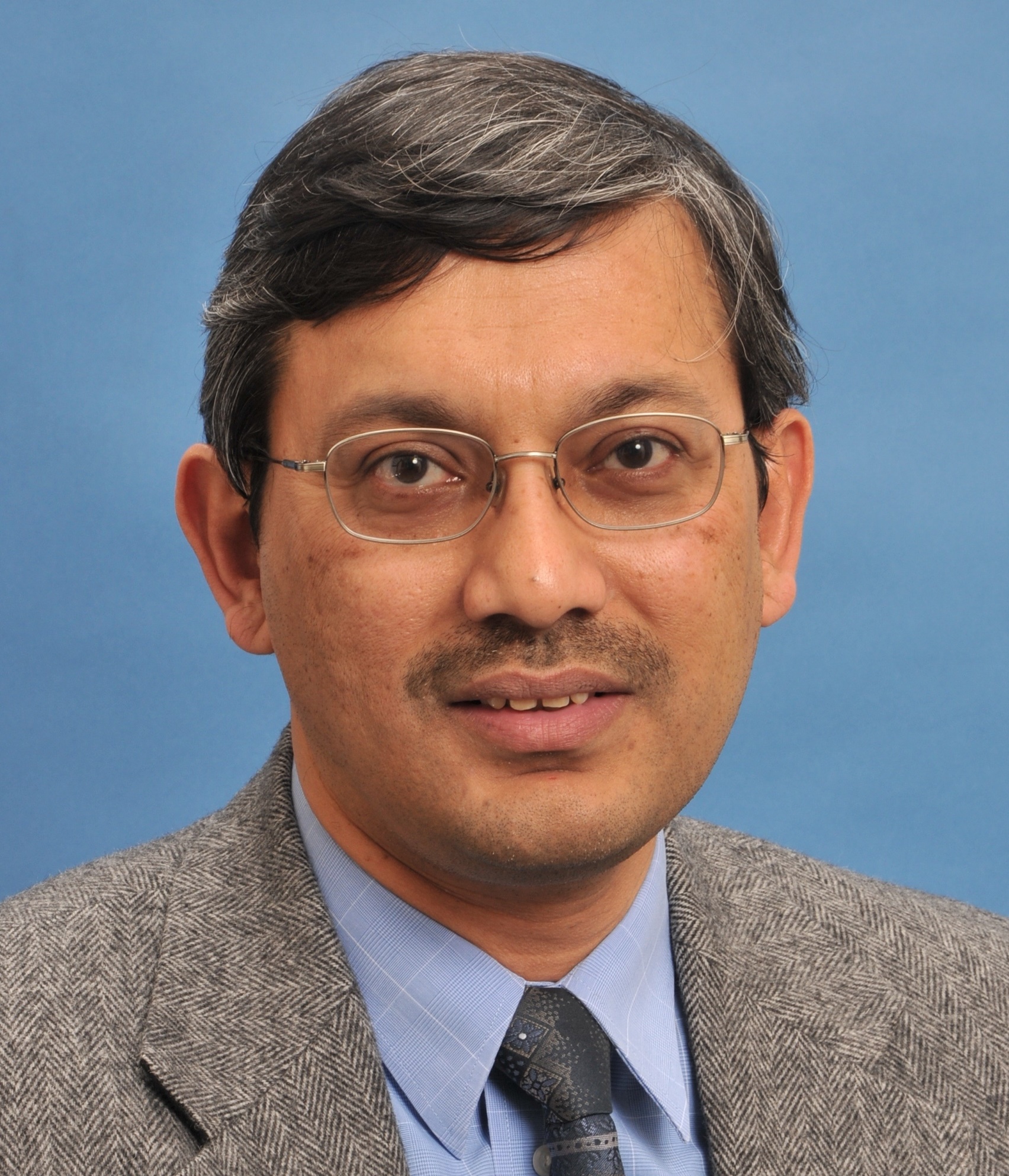 | Title: Smart Communication with Space: Protocols and Mobility Management
Keynote Speaker 4: Prof. Mohammed Atiquzzaman
University of Oklahoma, USA |
|---|
Abstract. Data communications between Earth and spacecrafts, such as satellites, have traditionally been carried out through dedicated links. Smart communication using shared Internet Protocol-based communication offers a number of advantages over dedicated links. The movement of spacecrafts however gives rise to mobility management issues.
This talk will discuss various mobility management solutions for extending the Internet connection to smart spacecrafts. The talk with provide an overview of the network layer based solution being developed by the Internet Engineering Task Force and compare with the transport layer based solution that have been developed at University of Oklahoma in conjunction with the National Aeronautics and Space Administration. Network in motion is an extension of the host mobility protocols for managing the mobility of networks which are in motion, such as those in airplanes and trains. The application of networks in motion will be illustrated for both terrestrial and space environment along with security issues related to mobility management schemes.
Biography. Mohammed Atiquzzaman (Senior Member, IEEE) obtained his M.S. and Ph.D. in Electrical Engineering and Electronics from the University of Manchester (UK) in 1984 and 1987, respectively. He currently holds the Edith J Kinney Gaylord Presidential professorship in the School of Computer Science at the University of Oklahoma.
Dr. Atiquzzaman is the Editor-in-Chief of Journal of Networks and Computer Applications, the founding Editor-in-Chief of Vehicular Communications, and serves/served on the editorial boards of many journals including IEEE Communications Magazine, Real Time Imaging Journal, International Journal of Communication Networks and Distributed Systems and Journal of Sensor Networks and International Journal of Communication Systems. He co-chaired the IEEE High Performance Switching and Routing Symposium (2003, 2011), IEEE Globecom and ICC (2014, 2012, 2010, 2009, 2007, 2006), IEEE VTC (2013) and the SPIE Quality of Service over Next Generation Data Networks conferences (2001, 2002, 2003). He was the panels co-chair of INFOCOM’05, and is/has been in the program committee of many conferences such as INFOCOM, Globecom, ICCCN, ICCIT, Local Computer Networks, and serves on the review panels at the National Science Foundation. He is the current Chair of IEEE Communication Society Technical Committee on Communications Switching and Routing.
Dr. Atiquzzaman received IEEE Communication Society's Fred W. Ellersick Prize, and NASA Group Achievement Award for "outstanding work to further NASA Glenn Research Center's effort in the area of Advanced Communications/Air Traffic Management's Fiber Optic Signal Distribution for Aeronautical Communications" project. He is the co-author of the book “Performance of TCP/IP over ATM networks” and has over 270 refereed publications, available at www.cs.ou.edu/~atiq.
His current research interests are in areas of transport protocols, wireless and mobile networks, ad hoc networks, satellite networks, power-aware networking, and optical communications. His research has been funded by National Science Foundation (NSF), National Aeronautics and Space Administration (NASA), and U.S. Air Force, Cisco and Honeywell.
|
Top↑
 | Title: Privacy-preserving in Crowdsensing Systems
Keynote Speaker 5: Prof. Wanlei Zhou
University of Technology Sydney, Australia |
|---|
Abstract. In recent years, the widespread prevalence of smart devices has created a new class of mobile and Internet of Thing applications. Called mobile crowdsensing, these techniques use workers with mobile devices to collect data and send it to task requester for rewards. However, to ensure the optimal allocation of tasks, a centralized server needs to know the precise location of each user, but exposing the workers' exact locations raises privacy concerns. In this presentation, we propose two solutions for privacy-preserving in crowdsensing systems. We first propose a privately data release mechanism for crowdsensing techniques that satisfies differential privacy, providing rigorous protection of worker locations. The partitioning method is based on worker density and considers non-uniform worker distribution. We then propose a private Blockchain based method for task payment that effectively preserves individual privacy in the entire crowdsensing system.
Biography. Professor Wanlei Zhou received the B.Eng and M.Eng degrees from Harbin Institute of Technology, Harbin, China in 1982 and 1984, respectively, and the PhD degree from The Australian National University, Canberra, Australia, in 1991, all in Computer Science and Engineering. He also received a DSc degree (a higher Doctorate degree) from Deakin University in 2002. He is currently the Head of School of Software in University of Technology Sydney (UTS). Before joining UTS, Professor Zhou held the positions of Alfred Deakin Professor, Chair of Information Technology, and Associate Dean (International Research Engagement) of Faculty of Science, Engineering and Built Environment, Deakin University. Professor Zhou has been the Head of School of Information Technology twice (Jan 2002-Apr 2006 and Jan 2009-Jan 2015) and Associate Dean of Faculty of Science and Technology in Deakin University (May 2006-Dec 2008). Professor Zhou also served as a lecturer in University of Electronic Science and Technology of China, a system programmer in HP at Massachusetts, USA; a lecturer in Monash University, Melbourne, Australia; and a lecturer in National University of Singapore, Singapore. His research interests include security and privacy, bioinformatics, and e-learning. Professor Zhou has published more than 400 papers in refereed international journals and refereed international conferences proceedings, including many articles in IEEE transactions and journals.
|
Top↑
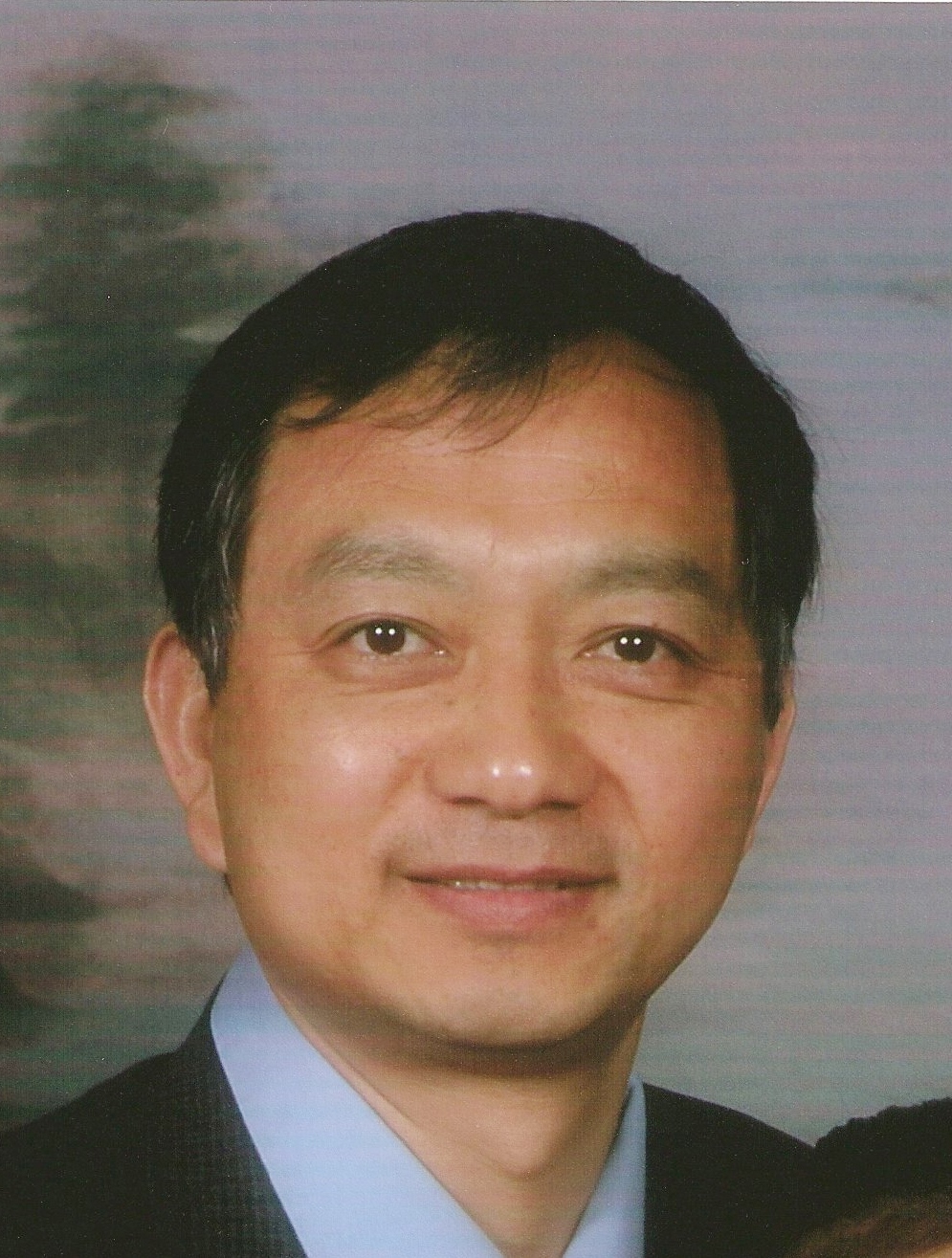 | Title: Radio Frequency Device and Performance Test for Smart World
Keynote Speaker 6: Dr. Yihong Qi
CEO of General Test Systems |
|---|
Abstract. Sensors are the fundamental units that connect the smart world. How can we make sure they are going to function properly and meet our performance requirement? The answer could be the right way of measurement! It is estimated that the deployed sensors can reach 50 billion by year 2020, and large percentage of the sensors being wireless enabled. To ensure the cost effective, reliable and maintenance efficient deployment of the wireless sensor networks, new accurate, fast, compact size and network-base radio frequency (RF) device performance test need to be investigated. This talk is highlighting internet of measurement concept and key building blocks for RF over the air test. The smart world’s massive sensor applications will reshape the measurement industry.
Biography. Dr. Yihong Qi is president of General Test Systems. He is adjunct professor in Missouri University of Science and Technology and Hunan University. Dr. Qi is an engineer and inventor, who has been merging the fundamental research breakthroughs of noise theory and electromagnetics with the applications in wireless communications. With more than 250 invention patents, he was the hardware technology driving force for the success of Blackberry. He is founder and partner of four technology companies, employing more than 4000 people globally. He developed multi-resonance antenna theory, which has led to the invention of a new generation of antenna for mobile phones which is used by all the smart phones today.
Dr. Qi is fellow of Canadian academy of engineering. He is chairman of IEEE emerging wireless communication technical committee of EMC society, Chairman of IEEE passive intermodulation working group. Dr. Qi is contributor for the CTIA and 3GPP standards. He is an advisory board of directors and associate editor of IEEE transaction on EMC, associate editor of IEEE internet of things journal. Dr. Qi is the distinguished lecturer of EMC society. He received the IEEE technical achievement awards in the IEEE EMC society, outstanding reviewer of IEEE transaction on instrumentation and measurement, top 10 entrepreneur award in the Pearl Delta all in 2017.
|
Top↑
Part II: IEEE UIC 2018
Keynote Speaker 7: Dr. Roy Want, Research Scientist, Android Location & Context Team, Google Inc (ACM Fellow and IEEE Fellow)
Title: Smart Things Know Where They Are
Keynote Speaker 8: Prof. Silvia Giordano, University of Applied Science - SUPSI, Switzerland
Title: User-centric Privacy & Security in the Ubiquitous World
Detailed Information about Keynote Speeches
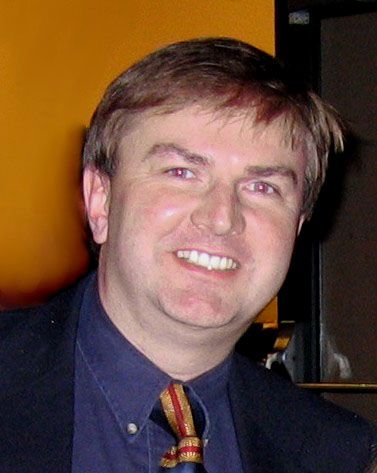 | Title: Smart Things Know Where They Are
Keynote Speaker 7: Dr. Roy Want
Research Scientist, Android Location & Context Team, Google Inc (ACM Fellow and IEEE Fellow) |
|---|
Abstract. Accurate indoor positioning technology is coming of age at a time when IoT technologies are proliferating. The combination will enable a wide range of novel context-aware services to automate tasks and support everyday work practice. This presentation will describe the latest location standards, how they work, and their applicability to the Internet of things.
Biography. Dr. Roy Want received his doctorate from Cambridge University, England in 1988, and is currently a Research Scientist at Google. Previous positions include Sr. Principal Engineer at Intel Corporation, and a Principal Scientist at Xerox PARC. He holds the grade of ACM and IEEE Fellow. His research interests include mobile and ubiquitous computing, distributed systems, context-aware applications, and electronic identification. He has more than 30 years’ experience working in the field of mobile computing. He served as the Editor-in-chief for IEEE Pervasive Computing from 2006-2009, Chair of the ACM SIGMOBILE Executive Committee from 2009-12 and is currently the Secretary for task group IEEE 802.11az (Next Generation Positioning). He has authored or co-authored more than 85 publications, with 100+ issued patents in this area. For more information about Dr. Want's academic and industrial achievements see http://www.roywant.com/cs/.
|
Top↑
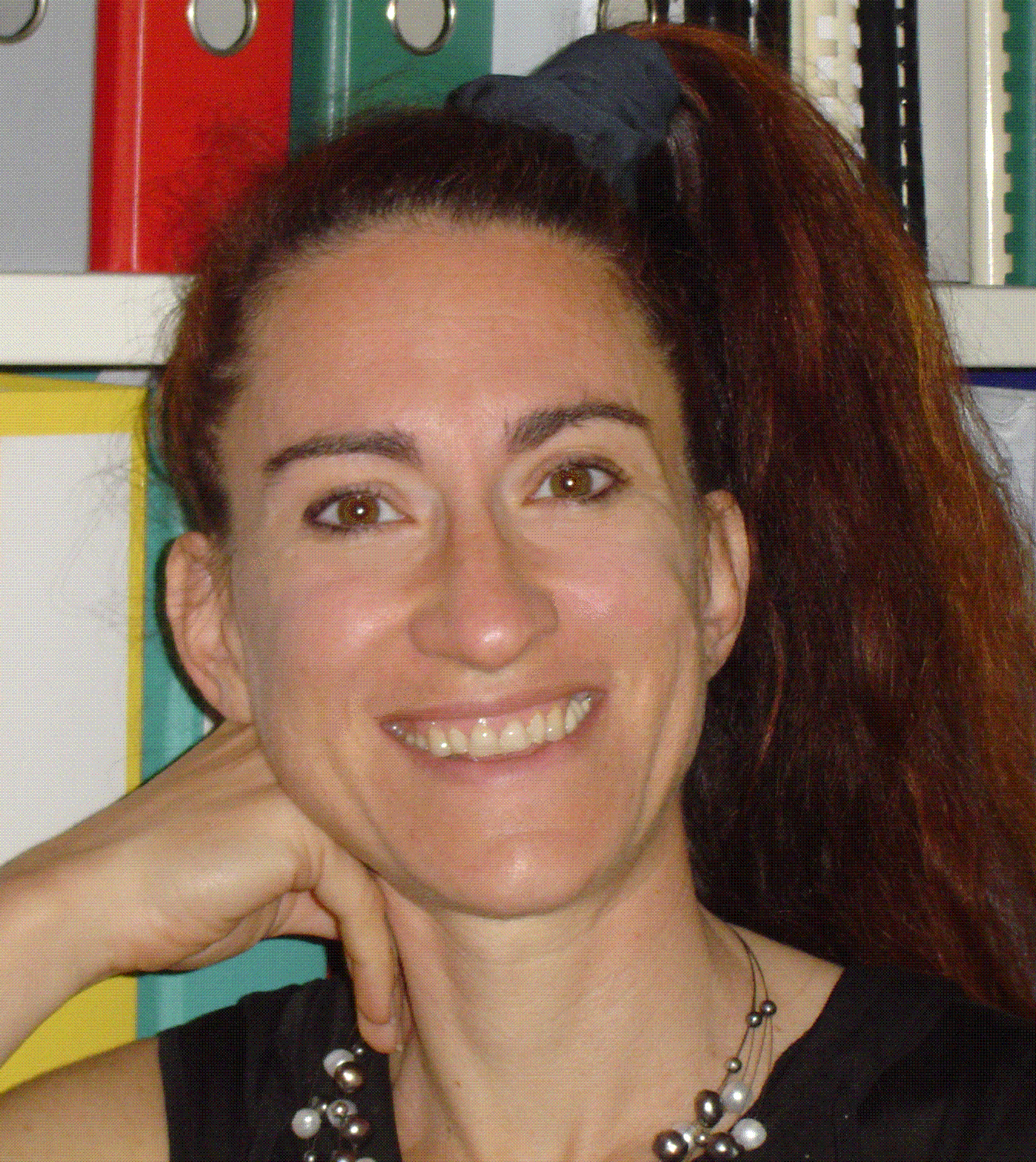 | Title: User-centric Privacy & Security in the Ubiquitous World
Keynote Speaker 8: Prof. Silvia Giordano
University of Applied Science - SUPSI, Switzerland |
|---|
Abstract. Ubiquitous Intelligence and Computing is creating a new service-rich world. However, it is also opening new paths for data leakage, data breach, and data phishing. We need to take a fresh look at the data privacy space by considering a user-centric approach. It has to be user-centric by considering user behaviours and the user context in order to teach them to improve security and privacy, and realize so privacy preserving data collection and processing. It has also to increase users awareness, data transparency and control. Users need to be informed about the data that are being collected in a user-friendly manner, and must have the option to oppose to them. This further generate a problem of Quality-of-Service, as in many scenarios there is a trade-off between guaranteeing privacy and performance. We are going to analyze some scenarios and possible solutions, and discuss how this can impact on our society.
Biography. Prof. Silvia Giordano holds a PhD from EPFL, Switzerland. She is currently the head of the Networking Lab (NetLab) in the Institute of System for Informatics and Networking (ISIN), co-responsible for the Social application area and direction member of ISIN, at the University of Applied Science and Arts - SUPSI in Ticino, Switzerland. Since October 2001, she is an associate researcher at CNR, Pisa. Since 2018 she is ACM Distinguished Members Committee. In 2017 she received the Stars in Computer Networking and Communications of ACM. In 2015, she received the 1000 Talents of Tianjin Municipality. In 2014 she was awarded ACM Distinguished Scientist and became Distinguished professor of the University of Tianjin. In 2013, she became ACM Distinguished Speaker. She is co-editor of the book (IEEE-Wiley 2004), and a new edition, with title (IEEE-Wiley 2013). Her main research interests are Complex and Social Networking, Wireless and Mobile Ad Hoc Networks, Opportunistic Computing and Networking, Human Mobility, Pervasive Computing and Networking, Quality of Service and Traffic Control. She has published extensively on journals, magazines and conferences in the areas of quality of services, traffic control, wireless and mobile ad hoc networks, and her H-Index is 36.
She is series editor of several important publications in her areas of interest. She is in the organization of the major conferences in her areas of interest and is co-founder/steering committee member of several important international events and is/was on the executive committee and TCP of the most relevant international conferences. She is a senior member of ACM, IEEE Computer Society, and IFIP WG 6.8. She is in the Board of the ACM N2Women.
|
Top↑
Part III: IEEE ATC 2018
Keynote Speaker 9: Prof. Xuandong Li, Nanjing University, China
Title: BACH: Path-oriented Reachability Checker of Linear Hybrid Automata
Detailed Information about Keynote Speeches
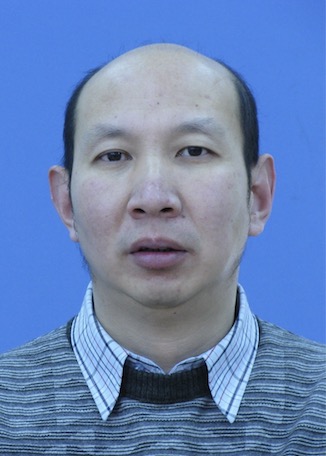 | Title: BACH: Path-oriented Reachability Checker of Linear Hybrid Automata
Keynote Speaker 9: Prof. Xuandong Li
Nanjing University, China |
|---|
Abstract. Hybrid system is a class of systems containing both discrete and continuous components. It has several discrete working modes and in each mode the physical parameters will change continuously according to time. There are many practical examples, for example Embedded System Controller, VLSI circuits and even System Biology. Most of the systems appear in Safety Critical Area. Therefore, it is crucial to conduct formal verification of such system to prove the correctness of such system.
The model checking problem for hybrid systems is very difficult. Even for a relatively simple class of hybrid systems, linear hybrid automata (denoted as LHA), the reachability analysis problem is undecidable. Bounded model checking (BMC) is a feasible way for the reachability verification of LHA, but it is difficult too. Typically, the BMC problem is solved by SMT technique. It encodes the bounded state space of the LHA into a set of SMT formulas at first. When the system size is large, the object problem will become huge, which greatly restricts the size of problem that can be solved.
In this talk, we review our LHA checker: BACH, which handles the BMC problem of LHA in a specific path-oriented way. Instead of encoding the bounded state space into one problem, BACH checks the reachability specification along one abstract path in the LHA at a time efficiently. As the number of paths under given bound is finite, all candidate paths can be enumerated and checked one by one to answer the BMC problem. In order to increase the efficiency, BACH supports an infeasible path segment analysis and pruning procedure to shrink the state space that is needed to check. Furthermore, if the collected infeasible path segments can block the target location from the initial one, the bounded argument can be even extended to the complete unbounded state space. Such method is also extended to the area of compositional LHA network, and nonlinear HA. All these techniques are implemented in BACH. Experiments show that by this path-oriented approach, the memory usage of the BMC of LHA is well-controlled and the size of system that can be analyzed is increased significantly.
Biography. Xuandong Li received the BS, MS and PhD degrees from Nanjing University, China, in 1985, 1991 and 1994, respectively. He is a full professor in Department of Computer Science and Technology, Nanjing University.
His research interests include formal support for design and analysis of reactive, distributed, real-time, hybrid, and cyber-physical systems, and software testing and verification.
|
Top↑
Part IV: IEEE CBDCom 2018
Keynote Speaker 10: Prof. Song Guo, The Hong Kong Polytechnic University
Title: Machine Intelligence in Geo-Distributed Systems: From Cloud to Edge
Detailed Information about Keynote Speeches
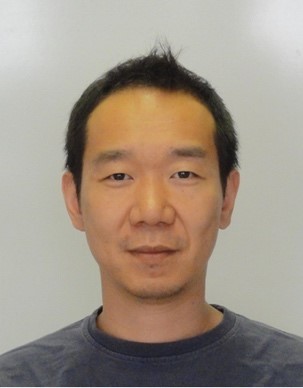 | Title: Machine Intelligence in Geo-Distributed Systems: From Cloud to Edge
Keynote Speaker 10: Prof. Song Guo
The Hong Kong Polytechnic University |
|---|
Abstract. When accessing cloud-hosted modern applications, users often suffer a significant latency due to the long geo-distance to the central cloud. Edge computing thus emerges as an alternative paradigm that can reduce this latency by deploying services close to users. In this talk, we will analyze the methodology and limitations of popular approaches for supporting AI services on geo-distributed systems along the evolution from cloud computing to edge computing. In particular, we shall discuss how to deal with different sets of challenges in training and inference, the two phases of machine learning based applications, over heterogeneous geo-distributed systems. We shall also present our recent studies on data driven resource management among networked collaborative edges.
Biography. Song Guo is a Full Professor at Department of Computing, The Hong Kong Polytechnic University. His research interests are mainly in the areas of big data, cloud computing and networking, and distributed systems. His work was recognized by the 2016 Annual Best of Computing in ACM Computing Reviews. He is the recipient of the 2017 IEEE Systems Journal Annual Best Paper Award and other five Best Paper Awards from IEEE/ACM conferences. Prof. Guo was an Associate Editor of IEEE TPDS and an IEEE ComSoc Distinguished Lecturer. He is now on the editorial board of IEEE TCC, IEEE TETC, IEEE TSUSC, IEEE TGCN, IEEE Network, etc. Prof. Guo also served as General and TPC Chair for numerous IEEE conferences. He currently serves as a Director and Member of the Board of Governors of ComSoc.
|
Top↑
Part V: IEEE IoP 2018
Keynote Speaker 11: Prof. Fuhua (Oscar) Lin, Athabasca University, Canada
Title: Multi-Agent Systems with Reinforcement Learning
Detailed Information about Keynote Speeches
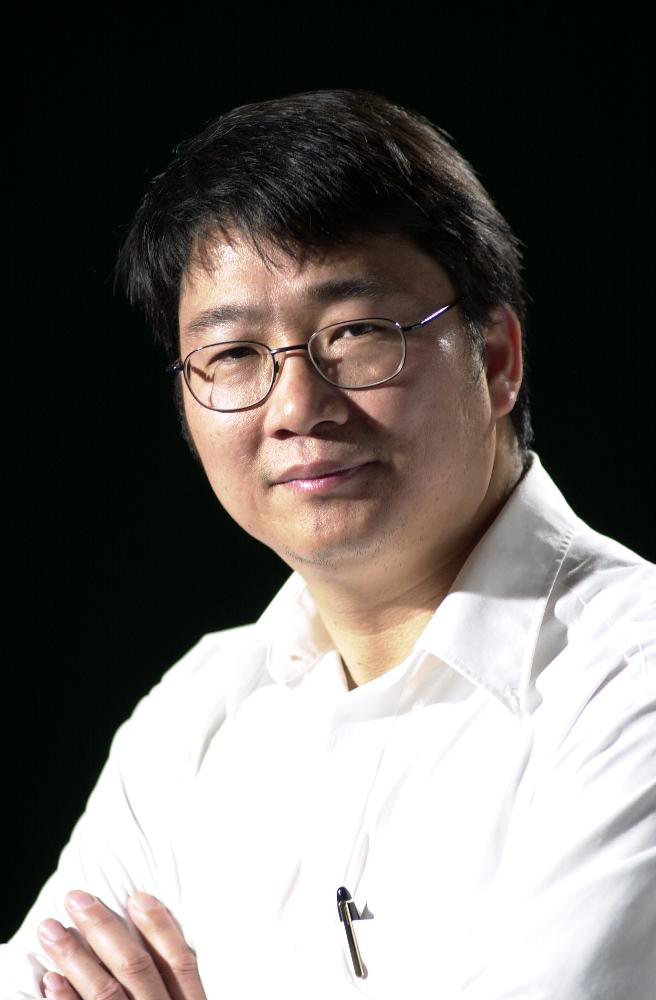 | Title: Multi-Agent Systems with Reinforcement Learning
Keynote Speaker 11: Prof. Fuhua (Oscar) Lin
Athabasca University, Canada |
|---|
Abstract. Distributed competitive decision making, as opposed to centralized planning, is emerging as the norm in networked systems which involve repeatedly making decisions in an uncertain environment.
In this keynote presentation I will present Multi-Agent Systems with Reinforcement Learning for decision-making for such systems, taking into account rationally selfish behavior of the connected agents/minds. In such environments, agents need to consider how to compete for scarce resources, trade, negotiate automatically, learn from each other, and form social organizations. In particular, I will discuss multi-armed bandit (MAB) learning algorithms. Unlike standard black-box and big-data based machine learning tools, MAB algorithms are active learning, which refers to algorithms that actively select data they should receive, and online learning, which refers to algorithms that analyze data in real-time and provide results on the fly. I will present MAB two real-world applications: Online Scheduling in Oil and Gas Industry and Vehicle Routing for Driverless Cars in Smart City.
Biography. Fuhua Lin is a professor in computing and information systems, Faculty of Science and Technology at Athabasca University, Canada.
His main research interests are: intelligent systems, multiagent systems, game theory, virtual reality, machine learning, online learning technologies and online scheduling. He has published more than 100 papers in international journals, proceedings of international conferences, books, and book chapters.
Dr. Lin obtained his PhD in Virtual Reality from the Hong Kong University of Science and Technology in 1998. Prior to working in Athabasca University, Dr. Lin was a Research Officer of Institute for Information Technology of National Research Council (NRC) of Canada. Dr. Lin did post-doc research at University of Calgary during 1998-1999.
Dr. Lin has acted as Principal and co-Principal Investigator on two NSERC Discovery Grants, two NSERC Engage grants, one Canada Foundation for Innovation (CFI) fund of Canada. He severed as the Co-Editor-In-Chief and Editor-In-Chief of International Journal of Distance Education Technologies (IJDET) during 2009-2013. Dr. Lin got Leaders Opportunity Fund Award from CFI in 2009, Craig Cunningham Mentoring and Teaching Excellence (CCMATE) Award, from Athabasca University in 2012, and a best paper award at IEEE Computer Science and Engineering (CSE) 2014. Dr. Lin is a member of AAAI, ACM, IEEE, AIED, and CAIAC.
|
Top↑
Part VI: IEEE SCI 2018
Keynote Speaker 12: Prof. Michael Batty, University College London, Fellow of the British Academy (FBA) and the Royal Society (FRS)
Title: The Pulse of the City: Computable Urban Fabrics, Information Networks, & Transport Flow Systems
Detailed Information about Keynote Speeches
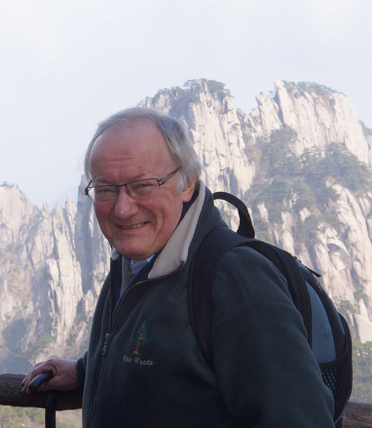 | Title: The Pulse of the City: Computable Urban Fabrics, Information Networks, & Transport Flow Systems
Keynote Speaker 12: Prof. Michael Batty
University College London, Fellow of the British Academy (FBA) and the Royal Society (FRS) |
|---|
Abstract. In this talk, I will sketch the development of the idea that cities should not be examined first and foremost as sets of locations, sets of places, but as arrays of flows – of relationships, movements, and links between locations. Locations cannot be understood without recourse to interactions and flows. In this sense, locations should always be unpacked and explored as flows and until we adopt this idea, our study of locations is only half complete. I will introduce a number of flow systems and then indicate how past efforts at thinking about cities in these terms is being enriched by data from the high frequency city. Much of this thinking revolves around the emergence of new data sets streamed in real time and is a consequence of the continuing computer revolution. I will show some of our work on building a model of flows for the UK, on defining communities using network science, and on flow systems such as automated transit using the ways in which we now access such systems using smart cards.
Biography. Michael Batty is Bartlett Professor of Planning at University College London where he is Chair of the Centre for Advanced Spatial Analysis (CASA). He has worked on computer models of cities and their visualisation since the 1970s and has published several books, such as Cities and Complexity (MIT Press, 2005) and The New Science of Cities (MIT Press, 2013). His most recent book Inventing Future Cities will be published by MIT Press in late 2018. His blogs www.complexcity.info cover the science underpinning the technology of cities and his posts and lectures on big data and smart cities are at www.spatialcomplexity.info. Prior to his current position, he was Professor of City Planning and Dean at the University of Wales at Cardiff from 1979 to 1990 and then Director of the National Center for Geographic Information and Analysis at the State University of New York at Buffalo (1990-1995). He is a Fellow of the British Academy (FBA) and the Royal Society (FRS), was awarded the CBE in the Queen’s Birthday Honours in 2004 and the 2013 recipient of the Lauréat Prix International de Géographie Vautrin Lud. In 2015 he received the Gold Medal of the Royal Geographical Society for his work on the science of cities. In 2016, he received the Senior Scholar Award of the Complex Systems Society and the Gold Medal of the Royal Town Planning Institute.
|
Top↑


